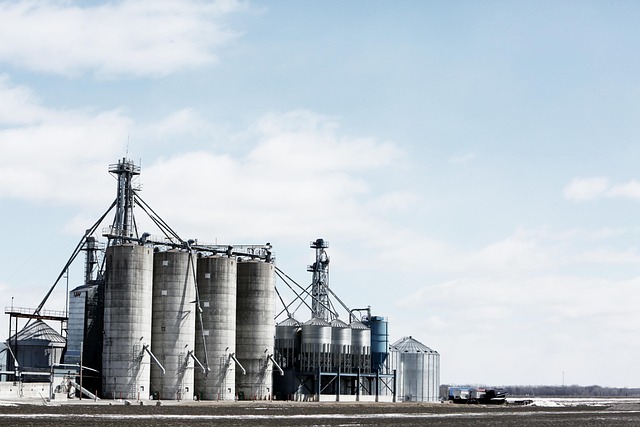Industrial processes demand refractory solutions that combine durability with precise performance. Tailored materials like bricks, coatings, and castables withstand extreme heat, preserving structural integrity in furnaces, kilns, and boilers. By optimizing thermal resistance and mechanical strength, these solutions enhance efficiency across industries—from steelmaking to waste-to-energy—offering reliable, innovative options engineered for harsh operating environments.
Understanding Refractory Solutions in Industry
Mxs-refractories plays a vital role in high-temperature industrial processes. Refractory solutions provide crucial support for industries such as steel, cement, glass, and chemicals, enabling equipment to withstand extreme thermal stresses. Tailored refractory products, designed for specific operational needs, enhance efficiency and extend equipment lifespan.
Also read : Premium commercial upholstery solutions in Cheltenham
These materials improve energy conservation through low thermal conductivity and resist shock and corrosion, making them indispensable for demanding environments. For example, in steelmaking, refractory linings protect crucibles and furnaces during prolonged high-temperature cycles. Cement kilns benefit from durable refractory bricks that resist wear over time, reducing maintenance costs.
User interaction data shows increasing demand for custom solutions that optimize operational performance. Manufacturers increasingly rely on innovative refractory systems to meet environmental and safety standards. Mxs-refractories offers a comprehensive suite of high-performance refractory materials and engineering expertise.
Also read : Expert tree surgeon moray: your local solution for tree care
Types and Technical Features of Refractory Materials
Refractory Brick Varieties and Applications
Refractory brick types and uses vary according to their mineral composition and operational requirements. Fireclay, silica, high-alumina, and magnesia bricks meet the needs of multiple industrial refractory applications. Fireclay bricks are favored for general furnace linings due to robust thermal insulation solutions for industry and moderate corrosion resistance. Silica bricks withstand high temperatures in coke ovens, while high-alumina options deliver both abrasion- and corrosion-resistant lining materials ideal for steelmaking and non-ferrous processes. Magnesia bricks, known for exceptional resistance in metallurgical refractory components, excel in intensely basic slag environments. Their versatility supports custom refractory linings and furnace lining innovations across kiln refractory solutions and refractory solutions for cement industry.
Castables and Monolithic Refractories
Refractory castables and mortars are poured or trowelled, forming seamless industrial furnace linings. These high-performance refractory materials, typified by the NORFLOW® line, simplify refractory installation techniques, supporting both energy-efficient refractory solutions and reduced installation time. Commonly applied in reactors, kilns, and boilers, castables uphold superior wear and thermal shock resistant linings, maximizing the refractory system life cycle and maintaining refractory material durability factors.
Ceramic and Advanced Refractory Composites
Heat-resistant ceramic solutions and advanced refractory composites set new industry standards. These solutions provide outstanding high-temperature resistant materials and optimize industrial heat containment systems in applications ranging from glass manufacturing to waste incineration. Innovations focus on improved structural integrity, outperforming traditional forms in terms of thermal shock resistance and wear-resistant refractory coatings, thus supporting long-term refractory repair and refurbishment.
Industry Applications, Benefits, and Supplier Options
Major Industry Domains Using Refractory Solutions
High-performance refractory materials are critical in demanding industrial refractory applications. Steel manufacturing heavily depends on blast furnace linings and converter linings to manage high thermal loads. The cement industry utilises kiln refractory solutions and preheater materials to meet production efficiency requirements and durability standards. Glass manufacturing employs custom refractory linings for melting tanks and furnaces, relying on advanced heat-resistant ceramic solutions for stable operations. Petrochemical plants and waste-to-energy facilities benefit from corrosion-resistant lining materials and energy-efficient refractory solutions to protect infrastructure during intense processing cycles.
Refractory Installation and Maintenance Best Practices
Refractory installation techniques such as precision casting, gunning, and ramming are foundational for safe, long-lasting furnace lining innovations. Increasingly, techniques like drone inspection and thermography support maintenance by conducting refractory lining wear analysis and locating potential failure points. Regular implementation of refractory maintenance best practices, including timely refurbishment procedures and adherence to refractory quality control standards, ensures system dependability.
Sourcing and Selecting Refractory Products
Durability, thermal insulation solutions for industry, and compatibility with operational conditions drive refractory product sourcing priorities. Trusted suppliers should demonstrate consistent refractory engineering services, wide-ranging refractory brick types and uses, and transparent supply chain practices. Industrial clients weigh the long-term benefits of tailored refractory products against upfront costs to achieve optimal refractory performance optimization for their operations.
High-Performance Refractory Materials in Demanding Industrial Applications
High-performance refractory materials are crucial for maintaining operation integrity in environments where extreme temperatures and chemical stress prevail. These advanced compositions are engineered for industrial refractory applications, such as metal processing, waste-to-energy plants, and petrochemical systems. Such conditions require not only resistance to intense heat but also tailored solutions to address unique wear and thermal cycling issues found in each setting.
Selecting the right tailored refractory products hinges on careful assessment of factors like corrosion rates, expected stress, and process-specific variables. Whether choosing between thermal insulation solutions for industry or heat-resistant ceramic solutions, the approach must account for operational longevity and efficiency. For example, robust corrosion-resistant lining materials can mean the difference between regular repair and uninterrupted service in acid-laden or oxidizing environments.
Innovations like custom-shaped linings, advanced castables, and integration of refractory engineering services are paving the way for energy-efficient solutions and reducing heat loss. These combined advancements reinforce the critical role of engineered materials for optimizing industrial furnace linings and extending system service life.






